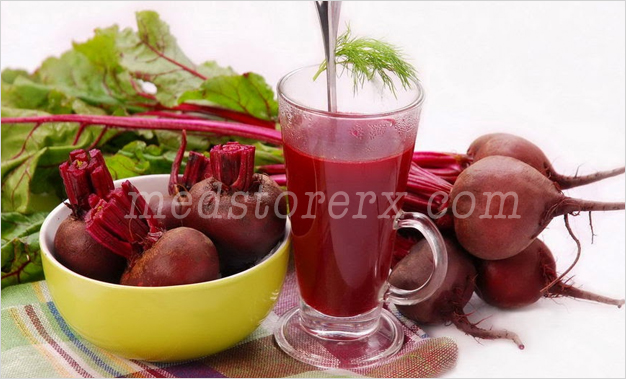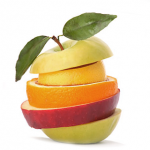Many of us are not aware of the health benefits of beetroot and generally exclude this vegetable in our daily diet. It belongs to a family of spinach and chard, which can be eaten raw with both the roots and leaves, as beet contains good amount sugar. The leaves have a pungent taste whereas the root is considerably sweet.
It is actually delicious but it has a slight bitter taste with great nutritional status. Romans were the first to cultivate beetroot; by the 19th century it gained an immense commercial value, because researchers discovered that beet extracts can be converted into sugar. Nowadays, the United States, Germany, Poland, France and Russia are the leading producers of beetroot.
Nutritional Value
Undoubtedly, beetroot is an excellent vegetable that is loaded with important vitamins (A and C), minerals (iron, calcium, manganese and potassium), and dietary fiber. Beetroot is also an important source of Folic Acid. Remember, this vegetable should not be overcooked as it may lose all the essential nutrients, rather enjoy it like spinach or in a raw form. According to nutritionists, a 100gm serving of raw beetroots provides 3gm fiber, 10 carbs, 2gm protein, 0gm fat and 43 calories.
How to choose organic one
The greens of beetroots should be intact which are often seen in good quality, organic and fresh ones. Choose fresh-looking greens with no signs of any abnormality like spoilage. The root should be firm and intact with a vivacious red-purple color. Do not select soft, wrinkled and dull-looking beetroot. Fresh roots with green leaves can be stored in a refrigerator for around 3 to 4 days, but only root i.e. without leaves can be stored up to 4 weeks. Usually, raw beetroots don’t freeze, but they become soft and wrinkled. You can still use a frozen beet as the nutritional value is not disturbed.
Health advantages –
Since ancient times, beetroots are used for medicinal purpose, mainly for detoxifying the liver from harmful toxins. Various liver disorders were treated with the help of beets. The red-purplish color of beetroot is due to its pigment, Betacyanin – a potent element that is believed to suppress the development of certain types of malignancies/cancer. Beets are rich in dietary fiber that improves digestion and bowel function that further helps in preventing and treating constipation.
The nutrients present in beetroots are useful in activating certain naturally occurring antioxidant enzyme, Glutathione Peroxides. In addition, beets are helpful in enhancing the white blood cells (WBCs), which are responsible for eliminating infectious cells. This incredible vegetable is also one of the best sources of Glutamine, a vital amino acid that helps maintain healthy gut and digestive tract. Researchers claim that the nitrate-content of beetroot helps one avert cardiac arrest by improving the overall blood circulation. Following are few health advantages –
1. Manages Blood Pressure Levels
2. Controls Blood Glucose Levels
3. Boosts Immune System
4. Fights Inflammation
5. Improves Digestion
6. Improves Oxygen Supply to Muscles
7. Prevents Cancer
8. Detoxifies Liver and Body
9. Combats Alzheimer’s Disease
10. Improves Overall Brain Function
Safety measure –
Though there are various health benefits of beetroots, but for few people, consuming beetroot can produce symptoms, such as red or pink color urine (beeturia) or stool, which is usually considered as harmless. The roots and leaves contain high levels of calcium and oxalate; therefore, people with past or present history of kidney stones (renal calculus) should stay away from consuming beetroots.


 Cart : 0 items - $0.00
Cart : 0 items - $0.00











